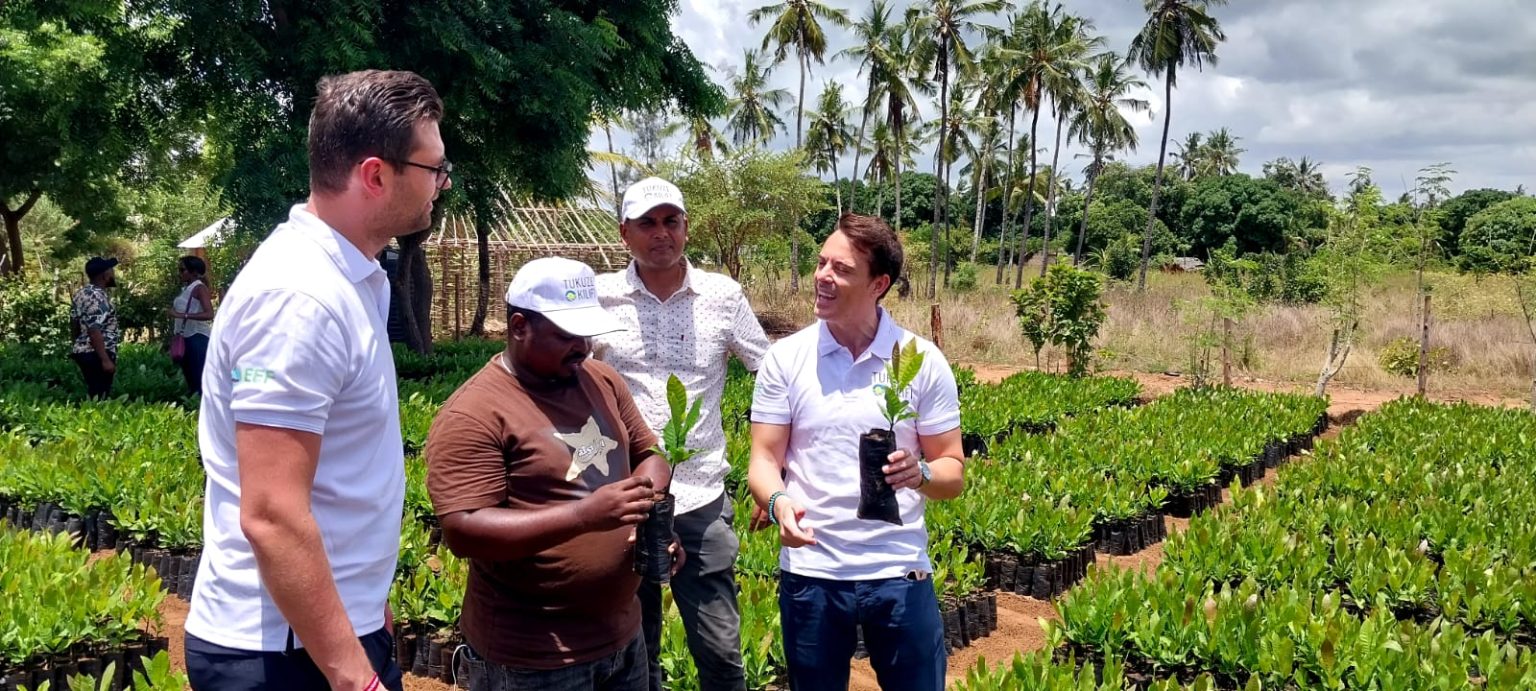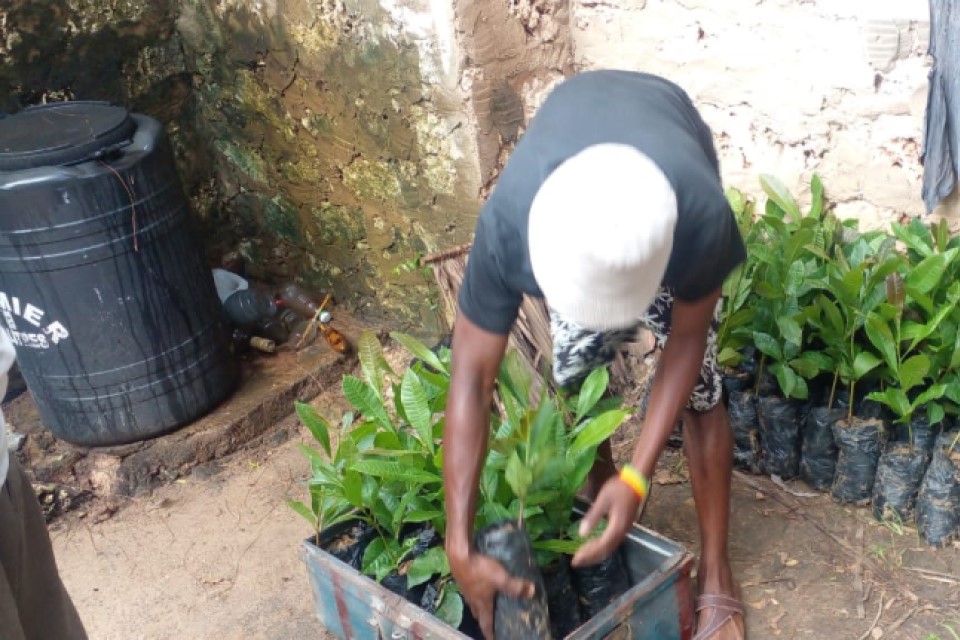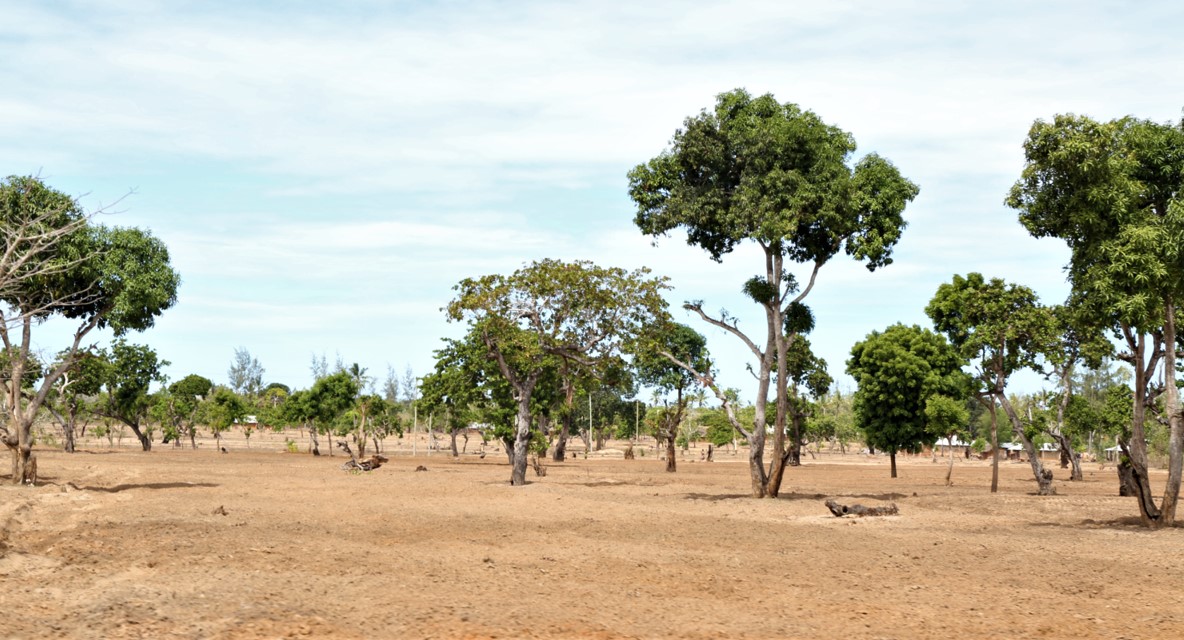12,500 cashew nut farmers in Kilifi benefit from free seedlings

Over 12,500 farmers in Kilifi County have joined the cashew nut farming initiative, facilitated by a local empowerment organisation providing thousands of polyclonal variety seedlings free of charge.
Cashew nut farming is gaining traction in Kilifi County, with an increasing number of farmers adopting fast-maturing seedling varieties introduced to the region.
More To Read
- Three shallow graves found in Kilifi's Kwa Binzaro village as fears of cult killings resurface
- Malindi embraces inclusive tourism as local, foreign investors open doors to community
- Kilifi set to phase out KWS' control of Malindi and Watamu marine parks - Governor Mung’aro
- Fears of new cult deaths in Kilifi as court allows DCI to dig up Chakama Ranch's suspected mass graves
- Free spine care camp transforms lives in Watamu as over 4,000 treated in one week
- Court detains 11 suspects in Malindi over suspected Shakahola forest cult activities
In Matsangoni village, Lucy Jumwa eagerly anticipates the promising returns from her 47 trees provided by the Empowering Farmers Foundation (EFF) group.
The EFF, funded by ETG Climate Solutions, launched the project in 2021 with 3,700 farmers in Matsangoni ward.
Now, they've expanded to include 12,500 farmers from five other wards: Watamu, Dabaso, Kakuyuni, Tezo, and Ganda.
Their latest endeavour involves distributing cashew nut seedlings, with the ambitious goal of planting one million cashew nut trees within the next two months.
"We found ourselves stranded when the cashew nut industry collapsed, leading to widespread tree cutting. Thankfully, the EFF intervened. They dispatched experts who assessed our remaining old cashew nut trees, which were yielding poorly. Through pruning and spraying, they revived them, resulting in resumed production in a short time," she explained.
The mother of four also stated that by the end of 2021, the EFF commenced educating farmers on effective agroforestry methods and agriculture practices resilient to climate change.
They introduced a fresh variety of cashew nut seedlings named polyclonal, along with moringa trees and millet for intercropping.
 Cashew nut farming is gaining traction in Kilifi County, with an increasing number of farmers adopting fast-maturing seedling varieties introduced to the region. (Photo: Farhiya Hussein)
Cashew nut farming is gaining traction in Kilifi County, with an increasing number of farmers adopting fast-maturing seedling varieties introduced to the region. (Photo: Farhiya Hussein)
"They assured us that the new variety can withstand drought conditions and can be planted alongside other drought-resistant crops such as millet and moringa, for which they supplied us with seeds and seedlings," she added.
Jumwa received 47 seedlings in 2022 and has already planted them.
Training
Out of these, 16 trees have started yielding results. According to her, they were trained by the organization on various farming practices which they are now implementing.
When planting the seedlings, they dig a hole that is two feet deep and two feet wide, then mix the soil with either compost or animal manure from their homes before planting the seedlings.
She mentioned that the seedlings need sufficient watering for the first week, so it's best to plant them during the rainy season.
She explained, "During the dry season, I planted my first seedlings and had to resort to a locally improvised drip irrigation method. I would fill plastic bottles with water, puncture them with needle-sized holes, and position them next to the trees. This ensured a slow, continuous drip of water throughout the day."
From her initial harvest, she earned Sh22,000 from 16 trees, using the proceeds to pay her children's school fees. Encouraged by the returns, she decided to expand her farm and purchased more seedlings from a nearby farmer.
"I'm expanding my farm due to the favourable market conditions. I sold a kilogramme of cashew nuts to a dealer for Sh50, compared to Sh20 previously, thanks to the improved quality," she explained.
Her journey mirrors that of Monica Mwananje from the Matsangoni area, who boasts 60 cashew nut trees on her farm, all currently in the flowering stage.
 The latest initiative involves distributing cashew nut seedlings, with the ambitious goal of planting one million cashew nut trees within the next two months. (Photo: Farhiya Hussein)
The latest initiative involves distributing cashew nut seedlings, with the ambitious goal of planting one million cashew nut trees within the next two months. (Photo: Farhiya Hussein)
“I have not harvested yet but from the flowering I am seeing, I am optimistic I’ll enjoy a good harvest. We have many more farmers coming in after witnessing the transformation most of us are undergoing because, with cashew nuts that require little attention, one can continue with other activities and wait for the harvesting period,” she said.
The farmers have been taught how to prepare nurseries and this has encouraged and attracted many more people to the crop which they also say is helping them tackle climate change since cashew is a tree that also absorbs carbon.
Seeds are sourced from Tanzania and there are various steps taken before they are put in the nursery with the first step being sorting of the possible seeds to germinate by soaking them into water hence those that float are removed since their germination chances are slim.
According to Mathew Jilani, the EFF Program Manager, the second phase of the project in Kilifi County targets 12,500 farmers and 80,000 acres across five additional wards.
"We have set up ten nurseries, two in each ward, to provide seedlings closer to farmers and minimize damage," Jilani stated.
He also mentioned the challenge of raw material scarcity for cashew nut processing, despite companies establishing bases in Kilifi.
Mithole, the EFF Project director in Matsangoni ward, explained their approach of training selected farmers to disseminate knowledge within their communities.
Ilya Tyuvildin, the ETG Climate Solutions Global head, emphasised the program's commitment to empowering all farmers in the county, citing extensive research and pilot projects conducted to meet the high global demand for cashew nuts.
Top Stories Today













































